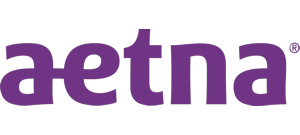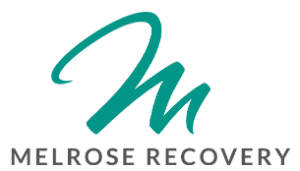Drug And Alcohol Rehab Los Angeles
Drug And Alcohol Rehab Los Angeles
Since 2015, Melrose Recovery Drug & Alcohol Rehab in Los Angeles, California
Drug And Alcohol Rehab Los Angeles
Drug And Alcohol Rehab Los Angeles – Inpatient drug rehab, also known as residential treatment, is a comprehensive program designed to help individuals recover from alcohol or drug addiction in a supportive and structured environment. This type of treatment involves living at a facility for an extended period, typically days. Let’s take a closer look at what inpatient rehab in Hollywood, CA entails and how it can benefit those struggling with drug and alcohol addiction.
Seeking help can be overwhelming, but know that you are not alone. Our addiction treatment programs in California offer a supportive and effective approach to recovery for those battling substance abuse.


Understanding Inpatient Rehab – Drug and Alcohol Rehab Los Angeles
Entering an inpatient treatment center can be a life-changing decision for individuals struggling with addiction. The immersive nature of inpatient rehab allows individuals to break free from the cycle of substance abuse and focus on their recovery journey. The supportive environment created within these facilities encourages individuals to confront their underlying issues and develop coping strategies for a sober lifestyle.
Inpatient rehab programs can vary in duration, ranging from a few weeks to several months. During this time, individuals receive individualized treatment plans that may include therapy, medication-assisted treatment, and holistic approaches such as yoga and meditation. The goal of drug or alcohol treatment is to address the physical, emotional, and psychological aspects of addiction to promote long-term recovery.
Our substance abuse treatment in Los Angeles, CA employs multidisciplinary healthcare professionals, including doctors, nurses, therapists, and counselors, to provide comprehensive care. This team works collaboratively to assess the individual’s progress, adjust treatment plans as needed, and offer continuous support throughout the recovery process.
Find Your Footing Again – Drug and Alcohol Rehab Los Angeles
- One-on-one talk therapy that encourages self-examination and identification of dysfunctions.
- Group therapy sessions with an eye on relapse prevention and disease education.
- Relaxation opportunities that may incorporate meditation.
- Exercise therapy that benefits individuals of all fitness levels to work on building physiological health.
- Social gatherings, which train you to relate to peers in a drug-free situation.
What to Expect During Residential Treatment – Drug and Alcohol Rehab Los Angeles
Everyone is different and what works for one person may not work so well for another. For this reason, we offer a broad range of residential treatment services.
Examples include:
- Customized psychotherapy that helps with dysfunctional pattern recognition and emotional regulation
- Relapse prevention training through 12 Step program attendance
- Family relationship therapy that assists residents with negative communication styles and ways of relating to others
- Addiction therapy in Los Angeles, which focuses specifically on their needs during rehab
- Exercise therapy that combines with nutritional counseling for healthy lifestyle choices


Key Features of Inpatient Rehab in Los Angeles
Quality of Care
Treatment Options
Facility Amenities
Navigating the Admission Process – Drug and Alcohol Rehab Los Angeles
Choosing the right inpatient rehab center is a crucial step toward recovery from addiction. It is essential to consider factors such as location, treatment approach, amenities, and aftercare support when making your decision. Researching reviews and testimonials from previous patients can also provide valuable insights into the quality of care and success rates of addiction treatment centers.
Eligibility Criteria for Inpatient Rehab
While each rehab center may have its specific requirements, eligibility for inpatient rehab typically depends on the severity of addiction, previous treatment history, and a willingness to participate in the program. Some treatment centers may also have age or gender-specific programs.
Additionally, financial considerations play a significant role in determining eligibility for inpatient rehab. It is important to inquire about insurance verification, payment options, and potential financial assistance programs offered by the facility. Many rehab centers offer sliding scale fees based on income or payment plans to make treatment more accessible.
Steps in the Admission Process
The admission process involves an initial assessment, medical screening, and a comprehensive intake evaluation. During this evaluation, our healthcare professionals will gather information about your addiction history, medical conditions, and any co-occurring mental health issues. We will then develop an individualized treatment plan based on your unique needs.
After the initial evaluation, you may be required to complete paperwork, provide identification and insurance information, and sign consent forms for treatment. It is important, to be honest and thorough during this process to ensure that the treatment team has a complete understanding of your situation and can tailor the treatment program to address your specific needs effectively.

Financing Your Rehab Stay
Insurance Coverage for Inpatient Treatment
Out-of-Pocket Costs and Payment Plans
Life After Rehab
Aftercare Support
Maintaining Sobriety Post-Rehab


Start Your Journey to Addiction Recovery at Melrose Recovery
Addiction is a complex and difficult struggle for many individuals. It can affect every aspect of their lives, including their physical, mental, emotional, and social well-being. However, it is important to know that recovery from drug abuse and alcohol addiction is possible and there is hope for a better future.
If you or a loved one is struggling with addiction, don’t wait any longer. Start your journey to recovery at Melrose Recovery today. Let us help you take the first step towards a healthier, happier life. Contact us today to learn more about our programs and how we can assist you on your path to recovery.
Drug And Alcohol Abuse Statistics & Data In The United States, June 10th, 2025
Top 20 Most Abused Drugs in the U.S.
Most Commonly Abused
-
Alcohol – Legal but widely misused; contributes to over 140,000 deaths annually.
-
Tobacco/Nicotine – Legal, highly addictive; leads to cancer, heart disease.
-
Marijuana (Cannabis) – Legal in many states, but still commonly misused.
-
Prescription Opioids (e.g., oxycodone, hydrocodone) – Major driver of the opioid crisis.
-
Fentanyl (illicit) – Synthetic opioid; causes the majority of opioid overdose deaths.
-
Cocaine – Powerful stimulant; includes crack cocaine.
-
Methamphetamine – Highly addictive stimulant; growing use in the U.S.
-
Heroin – Illicit opioid with high addiction and overdose risk.
-
Benzodiazepines (e.g., Xanax, Valium) – Prescribed for anxiety but often misused.
-
Adderall/Ritalin (Prescription stimulants) – Misused for focus or recreationally.
Still Significant, Less Prevalent
-
Synthetic Cannabinoids (“Spice,” “K2”) – Unpredictable effects, dangerous.
-
MDMA (Ecstasy, Molly) – Club drug, often adulterated with other substances.
-
Ketamine – Anesthetic also used recreationally; now explored for depression therapy.
-
LSD (Acid) – Hallucinogen; not usually addictive, but sometimes misused.
-
Psilocybin (Magic Mushrooms) – Rising interest due to therapeutic potential.
-
Inhalants (e.g., glue, aerosol sprays) – Common among teens; very harmful.
-
DXM (Cough syrup abuse) – Found in OTC medicines; misused for dissociative effects.
-
Bath Salts (Synthetic cathinones) – Dangerous and unpredictable stimulant drugs.
-
Anabolic Steroids – Abused for muscle growth; can lead to psychiatric and physical harm.
-
PCP (Phencyclidine) – Dissociative drug; rare but highly dangerous when used.
Notes
-
Fentanyl, particularly illicitly manufactured, is the leading cause of overdose deaths.
-
Polydrug use (e.g., combining opioids and benzodiazepines) significantly increases overdose risk.
-
Abuse patterns can shift rapidly depending on supply chains and legal status.
Health Insurance PPO Plans for Drug And Alcohol Rehab Los Angeles
PPO Plans for Melrose Recovery Drug And Alcohol Rehab Los Angeles, California
Finding effective treatment for drug and alcohol addiction is one of the most important steps in the recovery journey. For many individuals and families, navigating how to pay for rehab can be a major concern. Fortunately, Melrose Recovery, a leading addiction treatment center in Los Angeles, California, accepts a wide range of PPO (Preferred Provider Organization) health insurance plans, making high-quality care more accessible and affordable.
Why Choose Melrose Recovery?
Melrose Recovery offers a structured and supportive environment for individuals seeking recovery from substance use disorders. Their programs include:
-
Medical Detox
-
Residential Inpatient Treatment
-
Dual Diagnosis Treatment
-
Individual and Group Therapy
-
Aftercare Planning
What sets Melrose apart is their client-centered approach, experienced clinical team, and commitment to long-term recovery. Located in Los Angeles, the facility provides a safe and comfortable setting to begin healing.
What Are PPO Insurance Plans?
PPO insurance plans allow policyholders to see healthcare providers both inside and outside of their insurance network, usually without a referral. When it comes to addiction treatment, this flexibility can be vital.
Key PPO benefits for rehab coverage:
-
Out-of-network options: You can still receive coverage for facilities not directly in your provider’s network.
-
No referral needed: You don’t need a referral from a primary care physician to start treatment.
-
More provider choices: PPO plans give you more freedom to choose the rehab facility that fits your needs.
Does Melrose Recovery Accept My PPO Insurance?
Melrose Recovery works with most major PPO insurance providers, including but not limited to:
- Aetna
- AmeriHealth
- Anthem
- Blue Cross Blue Shield
- Cigna
- Hawaii Medical Service Association (HMSA)
- Humana
- Kaiser Permanente
- Medical Mutual
- Premera Blue Cross
- UnitedHealthcare
Melrose Recovery’s admissions team is available 24 hours a day 714-442-7782 to verify your insurance benefits quickly and confidentially. This process helps determine your coverage, deductible, co-pays, and out-of-pocket maximums before starting treatment.
Verifying Insurance Coverage
To find out if your PPO insurance plan covers treatment at Melrose Recovery:
-
Call Melrose Recovery directly – Speak with an admissions specialist who can walk you through the insurance verification process.
-
Submit insurance info online – Many treatment centers, including Melrose, offer a secure online form for quick verification.
-
Check with your insurer – You can also contact your insurance company directly and ask about your behavioral health benefits.
The Importance of Getting Help
Addiction is a chronic and progressive condition—but with the right support, recovery is absolutely possible. By accepting a variety of PPO plans, Melrose Recovery helps reduce financial barriers to care, so individuals and families can focus on healing rather than costs.
Take the First Step Today
If you or a loved one is struggling with addiction, don’t wait. Melrose Recovery in Los Angeles offers compassionate, evidence-based care in a supportive setting. With PPO insurance coverage, treatment may be more affordable than you think.
Contact Melrose Recovery today to learn more about admissions and insurance verification. Your path to recovery can start now.





Get In Touch
info@melroserecovery.com
501 North Mariposa Ave, Los Angeles, CA 90004



